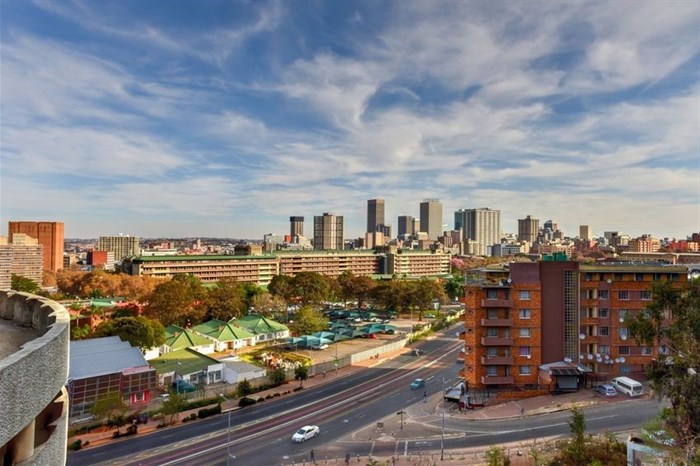According to the annual Mastercard Global Destination Cities Index, Johannesburg is the most popular destination city in Africa for its fifth consecutive year. The city attracted 4.05 million international overnight visitors in 2017; Marrakech in Morocco is the second most popular African destination city, welcoming 3.93 million international overnight visitors. Polokwane (1.88 million), Cape Town (1.73 million) and Djerba in Tunisia (1.65 million) rounded out the top five African cities ranked in the Index
Johannesburg also recorded the highest international overnight visitor expenditure among African cities with travellers spending $2.14bn in 2017, well ahead of Marrakech ($1.64bn). On average, international visitors stayed 10.9 nights and spent $48 per day in Johannesburg, with shopping accounting for more than 50% of their total spend.
"The city has once again topped the ranks of this year’s African index, with its mix of shopping and tourism offerings still hitting the mark with international travellers," says Mark Elliott, division president of Mastercard Southern Africa. "The ranking is significant for Joburg’s economic prospects as visitor expenditure contributes an important source of revenue to the retail, hospitality, restaurant and cultural sectors."
The Mastercard Global Destination Cities Index ranks the world’s top 162 destination cities in terms of visitor volume and spends for the 2017 calendar year. It also provides insight into the fastest growing destination cities and a deeper understanding of why people travel and how they spend around the world.
This year's Index ranks 23 major African cities including Cairo, Nairobi, Lagos, Casablanca, Durban, Tunis, Dar es Salaam, Accra, Kampala, Maputo and Dakar among others.
As an indication of the importance of intra-regional travel, just over 57% of international overnight visitors to Johannesburg in 2017 originated from five Southern African countries. Mozambique was the number one country that sends visitors to Johannesburg, accounting for 809 000 visitors or 20% of the total, followed by Lesotho (12.4%), Zimbabwe (12%), Botswana (6.7%) and Swaziland (6.1%).
According to the City of Johannesburg, the Index rating affirms Johannesburg’s position as the major economic and cultural hub in Africa.
"As the strong numbers of visitors from our neighbouring countries show, Johannesburg is one of the continent’s most significant metropolises for business, trade, investment and leisure," says City of Johannesburg Executive Mayor Herman Mashaba.
"The Index re-affirms Johannesburg’s status as a destination that continues to attract international overnight visitors each year due to its continually evolving tourism offerings - from popular shopping destinations and our world-class malls to a wide range of lifestyle, sporting and business events."
South African cities show strong performance
Cape Town and Polokwane ranked third and sixth in terms of the African cities with the highest international overnight visitor expenditure in 2017, with visitors spending $1.62bn and $760m respectively. While visitors to Cape Town stayed 12.5 nights and spent $75 per day on average, travellers to Polokwane stayed for a shorter period (4.3 nights), but spent more per day ($95). Shopping is also a drawcard for visitors to both Cape Town and Polokwane, accounting for 22% and 60% of their total spend respectively.
Cape Town attracted the largest proportion of long-haul visitors in South Africa, with travellers coming from the United Kingdom (14.4%), Germany (12.4%), United States (10.9%), and France (6.6%). Cape Town’s highest number of African visitors came from Namibia (6.2%). Polokwane’s top three countries of origin were Zimbabwe (77.7%), Botswana (6.9%), and the United States (2.5%).
The world’s top destination cities
With roughly 20 million international overnight visitors, Bangkok retained the top spot this year. Visitors tend to stay in Bangkok 4.7 nights and spend $173 per day. London (19.83 million), Paris (17.44 million), Dubai (15.79 million) and Singapore (13.91 million) round out the list of top five global cities by visitor numbers.
However, not all cities are created equal when it comes to the amount visitors spend in the local economy.
Dubai continues to be the top-ranking destination city based on overnight visitor spend, with visitors spending a whopping US$29.7 billion in 2017 or U$537 per day on average. It is followed by Makkah, ($18.45bn), London ($17.45bn), Singapore ($17.02bn) and Bangkok ($16.36bn).
"International travel is crucial to many urban economies, enriching the lives of both residents and tourists. The bar is rising for cities to innovate to provide both a memorable and authentic experience," says Elliott. "We’re partnering closely with cities around the world to ensure they have insights and technologies to improve how they attract and cater to tourists while preserving what makes them so special in the first place."






























